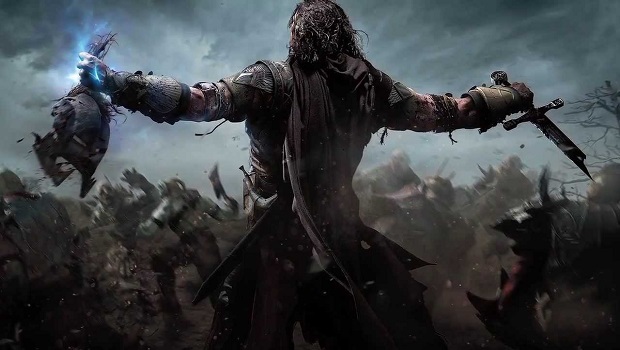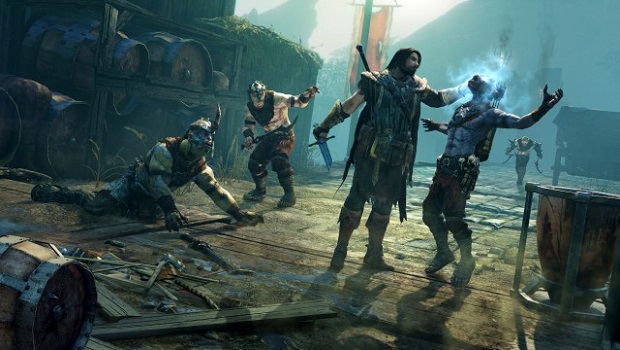I must confess, that as a new, licensed title from a new studio, I had no faith in Middle Earth: Shadow of Mordor being anything other than mediocre. How very, very wrong I was. The game has a wonderful (though bleak) open world, with many different things to do, and a combat system very reminiscent of Batman: Arkham Asylum. Surrounded by Uruks, I can unleash a flurry of moves, counters, and abilities to slaughter my foes. Sneaking was an option, cutting my enemies apart from the shadows. Or, I could unleash the various beasties of Mordor upon my foes, or poison them, or use explosions to take them down. The variety of options was vast, but, unlike Assassin’s Creed’s option vomit (seriously- narrow your focus), this felt more refined, more controlled.
The game’s best feature is the Nemesis system. Captains and warchiefs offer a dynamic storyline and emergent gameplay at its very best. I met a captain, and killed him with an arrow. Or, at least, I thought I did. He showed up wearing a helmet. So I cut him down with my sword. And he returned later, covered in bandages. No matter, said I, as I took him out again. Yet, again he returned, hunting me down and seeking revenge, scarred, helmeted, and bandaged. Other enemies grew stronger when they killed me, taunting me over my previous deaths when I faced them again. While playing, I found myself ignoring the storyline in favor of tracking down a hated rival, tracking down information on his strengths and weakness, and horning in on his attempts at advancing himself. The Nemisis system makes this game a cut above the rest. In a month where Destiny fell well short of expectations, Shadow of Mordor more than made up the difference.

